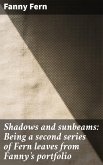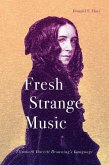In "Fresh Leaves," Fanny Fern employs her signature wit and keen social insight to explore the complexities of 19th-century womanhood. This collection of essays, originally published in the mid-1850s, showcases Fern's ability to blend humor with poignant commentary on the roles and limitations placed upon women in a male-dominated society. Utilizing a conversational style that engages the reader directly, she addresses issues ranging from marriage and motherhood to the pursuit of individuality, all while drawing from her own experiences as a writer and a woman advocating for social change. The essays reflect the emerging voice of women's rights in a period when such discourse was beginning to gain traction in literary circles. Fanny Fern, born Sarah Payson Willis, was a trailblazing literary figure who defied the conventions of her time. Drafted into writing due to financial necessity following the death of her first husband, she became one of the first female newspaper columnists. Her courageous stance on women's issues and her candid reflections on domestic life were revolutionary, inspired by her own struggles as a mother and a working woman, infusing her work with authenticity and urgency. "Fresh Leaves" is a compelling read for those interested in feminist literature, antebellum American culture, and the evolving role of women in society. Fern's incisive observations and relatable stories resonate with contemporary readers, offering timeless truths about gender and identity that remain relevant today. This work deserves a place on the shelves of anyone who values the historical dimensions of literary feminism.
Dieser Download kann aus rechtlichen Gründen nur mit Rechnungsadresse in A, B, BG, CY, CZ, D, DK, EW, E, FIN, F, GR, H, IRL, I, LT, L, LR, M, NL, PL, P, R, S, SLO, SK ausgeliefert werden.









